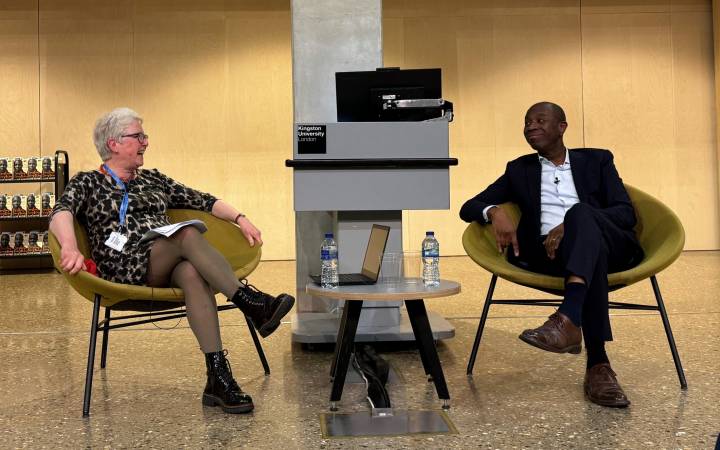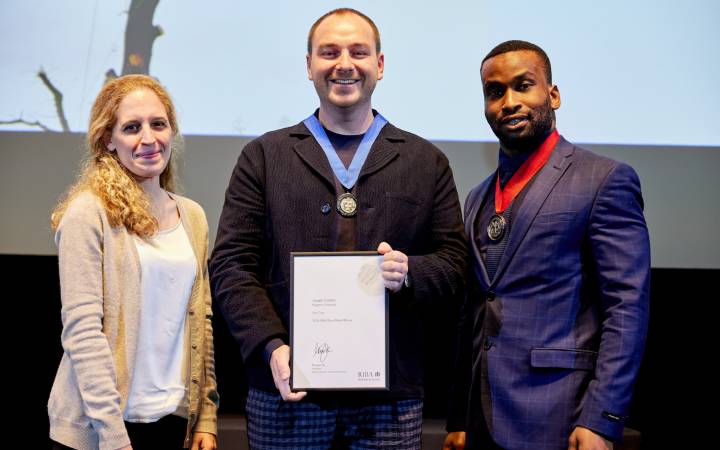Employer engagement key to tapping into pipeline of emerging talent as school leavers consider future careers, Kingston University study finds
Posted Wednesday 20 March 2024
 The report shares advice on how industries can attract the best in young talent by engaging with pupils while still at school and raising greater awareness about the range of opportunities available to them.
The report shares advice on how industries can attract the best in young talent by engaging with pupils while still at school and raising greater awareness about the range of opportunities available to them.
A report conducted by a Kingston University academic has examined the integral role of employer engagement as school leavers prepare to embark on the first stages of their careers.
Focusing on 14 to 16 year olds, the report identified that young job seekers generally had a clear picture of what they viewed as a good job, with detailed expectations of salary, stability and satisfaction. They were eager for industry engagement, particularly through in-person visits to schools throughout their studies, but anxious about the impact of artificial intelligence and the robustness of the job market.
The research, undertaken by senior lecturer Dr Sarah Otner, an expert in organisational behaviour, along with careers platform ERIC, was funded by The British Academy and commissioned by The Fragrance Foundation. Titled How Can Industries Reach the Next Generation in the Talent Pipeline?, it examined how the wide variety of employment opportunities available in the UK were discovered, presented and communicated to young people in schools.
The report shares advice on how industries traditionally less at the forefront of jobseekers' minds can attract the best in young talent by engaging with pupils while still at school and raising greater awareness about the range of opportunities available to them. It also contains a wealth of data in response to questions about the current state of careers education in secondary schools and online.
 The research was undertaken by senior lecturer Dr Sarah Otner, an expert in organisational behaviour, along with careers platform ERIC, and was funded by The British Academy and commissioned by The Fragrance Foundation.Participants in the research included students currently studying at secondary schools who were getting ready to take their first tentative steps into the world of work. The sample group was sourced through TikTok promotion publicising the research.
The research was undertaken by senior lecturer Dr Sarah Otner, an expert in organisational behaviour, along with careers platform ERIC, and was funded by The British Academy and commissioned by The Fragrance Foundation.Participants in the research included students currently studying at secondary schools who were getting ready to take their first tentative steps into the world of work. The sample group was sourced through TikTok promotion publicising the research.
Many school-aged respondents reported they were dissatisfied with the support they received while preparing for their careers, identifying that simple interventions could deliver significant turnarounds. "From speaking to the secondary school students there was a clear desire for engagement from businesses, mainly through school visits," Dr Otner said. "However, this need was often not being met, with many students sent to online resources instead, which they didn't feel gave them the same level of understanding of all the opportunities available within different sectors. Unfortunately, many appeared to receive limited support and poor guidance about careers from their schools, with school-based careers advisers being their primary source of regular advice."
The report includes a series of recommendations for future industry engagement with school pupils. "While social media can act as a source of inspiration and starting point, one surprising discovery was how valued in-person engagement remained," Dr Otner said. "Young job seekers want rich, interpersonal connections. The research revealed the most successful way to connect with a young audience is to be proactive and highly visible, inclusive and authentic when sharing a detailed picture of working life."
Chief Executive Officer of the Fragrance Foundation Linda Key Jackson said it was eager to engage and inspire new talent to pursue careers in the industry. "Collaborating with universities provides us with greater insight to be able to ensure students are aware of the many opportunities the fragrance industry has to offer," she explained. "It's vital for us to be aware of what young people look for when considering a career, and this report provides us with invaluable understanding of their needs."
Dr Otner's research resonates with Kingston University's Future Skills campaign. As well as underpinning the roll out of a new model of education across all its undergraduate courses to equip students with the graduate attributes needed for career success, the campaign calls for more to be done to expand school pupils' horizons and extend their understanding of the skills they need to thrive in a future-facing world.
- Read the report.
- Find out more about studying business management at Kingston University.
Contact us
General enquiries:
Journalists only:
- Communications team
Tel: +44 (0)20 8417 3034
Email us



